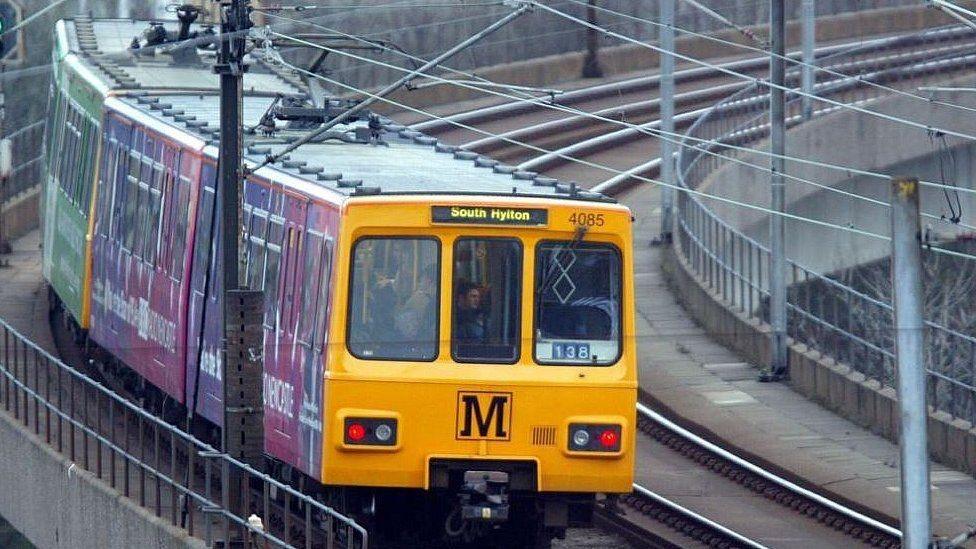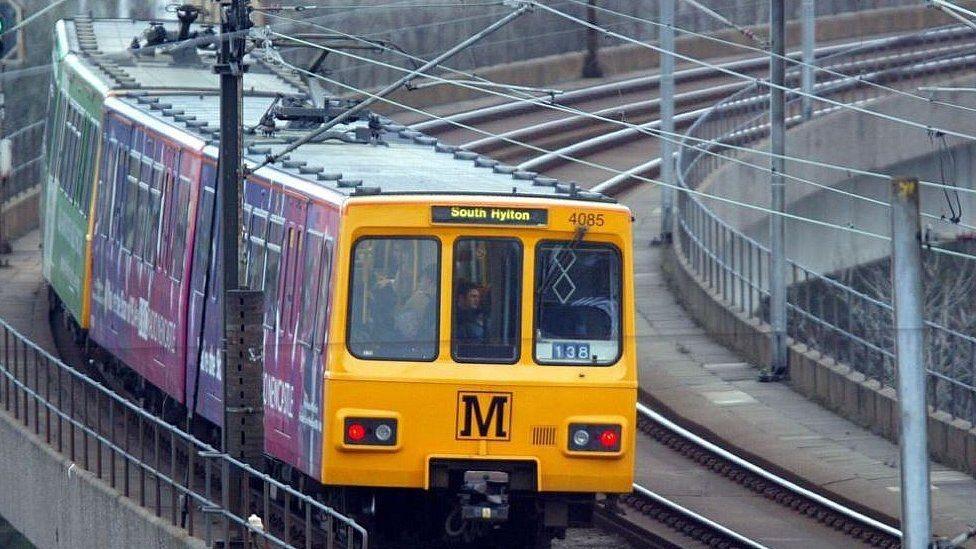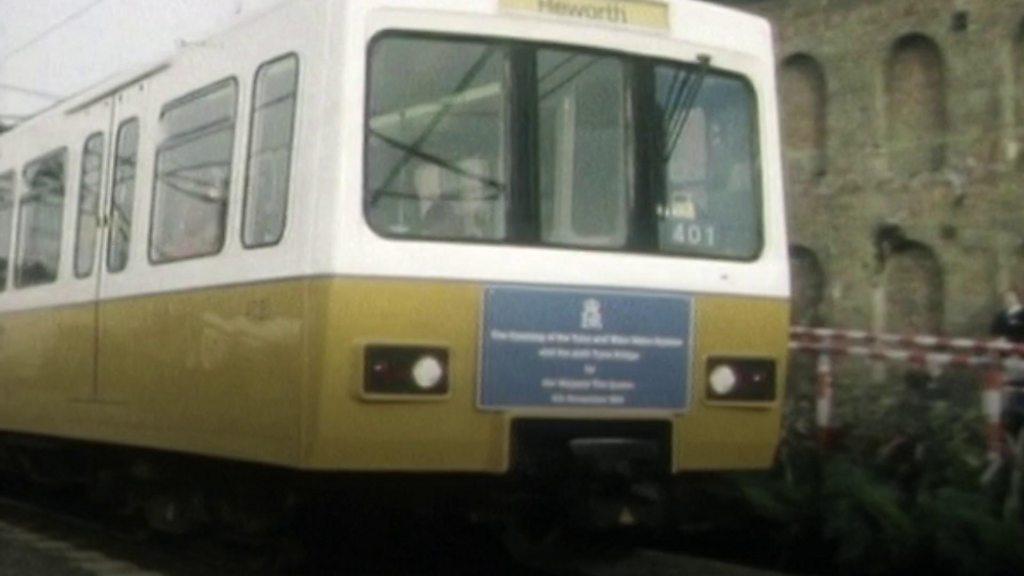Tyne and Wear Metro 'cliff edge' funding warning
- Published

The pandemic has led to a major drop in ticket sales
North East transport chiefs have been warned that vital services will fall "over a cliff edge" without a huge shift in how they are paid for.
Tyne and Wear Metro operator Nexus is predicting a £20.8m shortfall in 2022-23, that is set to lead to significant cuts on local bus routes in particular.
The chief cause is the fall in Metro ticket sales due to Covid.
A £50m government bailout has kept trains running during the pandemic but the funding is due to run out in April.
At a meeting of the North East Joint Transport Committee (JTC), Newcastle Lib Dem councillor Greg Stone warned "the direction of travel is over a cliff edge" for Metro and bus services, the Local Democracy Reporting Service, external reported.
Under budget proposals to be finalised in January, if there is no further bailout, the £7.5m to reimburse private bus companies for carrying passengers with free bus passes could be removed, potentially leading to cutbacks in services.
There would be spending of its reserves, and the five Tyne and Wear councils would also be asked for extra funds.
Councils have not yet said whether they would agree, though the JTC's overview and scrutiny panel heard that this "might be a case of not wanting to blink first" while still lobbying the government.
However, even before Covid hit, Nexus was expecting to have to make cuts beyond 2022 to balance its books.
'Serious situation'
Councillor Stone said: "Unless we change our overall strategy on this, we are going to have the same next year and beyond.
"We are looking to spend most of the reserves this year and beyond 2024 I don't see there being any reserves left.
"I am desperately concerned about the situation we are in and if we don't get a deal back from the government or councils don't step in with more funding for the transport levy then we are in very dire straits."
John Fenwick, Nexus's head of finance, said the Metro was "highly exposed" due to a heavy reliance on ticket income to cover around 60% of its expenditure.
North Tyneside Labour councillor Sandra Graham said that securing extra government money was the only solution.
"The government said 'no, no, no' last year and then they came up with the goods because they knew things were going to fall apart."
Mr Fenwick said talks over a new bailout were continuing and local representatives were stressing the "very serious situation for the future of public transport in the North East".

Follow BBC North East & Cumbria on Twitter, external, Facebook, external and Instagram, external. Send your story ideas to northeastandcumbria@bbc.co.uk, external.
Related topics
- Published16 November 2021

- Published17 July 2021

- Published15 July 2021

- Published11 August 2020
